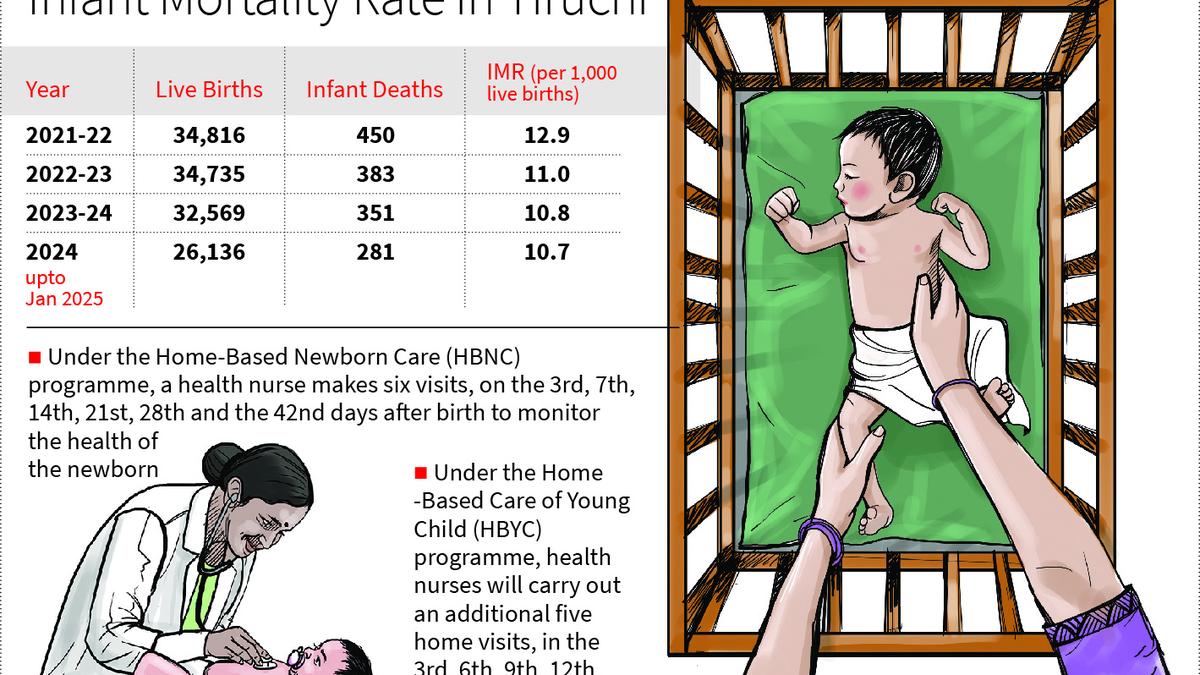
Efforts intensified to reduce Infant Mortality Rate in Tiruchi
The Hindu
In a bid to reduce the infant mortality rate (IMR), health officials in Tiruchi have stepped up their surveillance and review mechanisms, aimed at identifying and addressing the root causes of infant deaths
In a bid to reduce the infant mortality rate (IMR), health officials in Tiruchi have stepped up their surveillance and review mechanisms, aimed at identifying and addressing the root causes of infant deaths.
According to official sources, Tiruchi district’s IMR stood at 10.7 per 1,000 live births up to January during the period 2024-25. A total of 281 infant deaths were recorded out of 26,136 live births in the district. The sex ratio is 955 during the same period.
Although the IMR in the district has shown a declining trend over the past few years, steps have been taken to strengthen the surveillance activities and ensure that new-borns received the best possible care to bring down the IMR to a single digit.
As part of the initiative, health officials are conducting regular reviews of infant mortality cases, analysing the causes of death, and identifying areas for improvement. The data collected are updated and reviewed every day to develop targeted interventions and reduce the risk of infant mortality.
“To increase medical facilities and availability of emergency care services for both the baby and mother is the priority. Regular check-up, vaccinations, and nutritional counselling, all of which are critical in preventing infant mortality, have been intensified,” said a senior health official.
Post birth, a new-born is being monitored under the Home Based New Born Care (HBNC) programme. Health nurses make six visits within one-and-a-half months of birth to examine the baby for premature birth, low birth weight, and illness, check for provision of care at home, educate the mother on breastfeeding and immunisation, and counsel the mother on postpartum care, identify postpartum complications, and provide a referral. Additional visits for pre-term, low birth weight or ill babies will be conducted.
Similarly, under the Home Based Care for Young Child Programme (HBYC), nurses will conduct five home visits within one-and-a-half years to counsel mothers for exclusive breastfeeding till six months and continued breastfeeding with adequate complementary feeding, identify, and manage problems related to nutrition and health in their child and facilitate for early identification of delay in growth and development of children.













